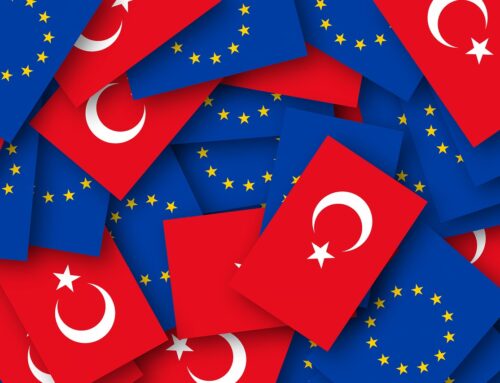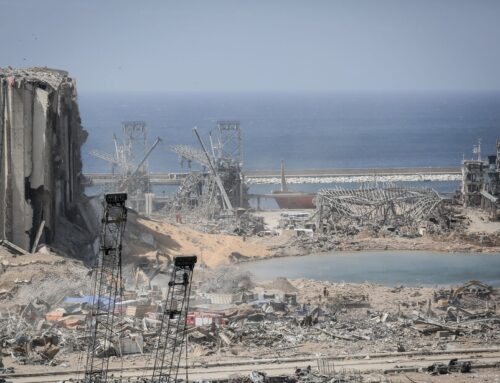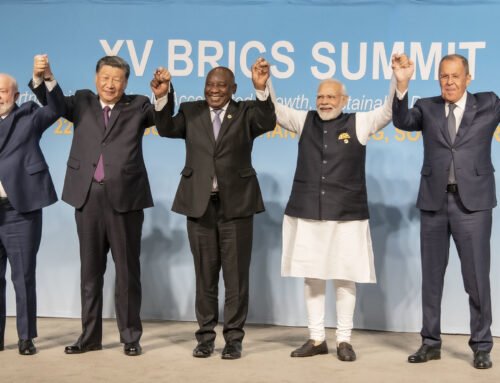Disinformation – why it (often) works and why this can impact our security
Autor foto: Domena publiczna
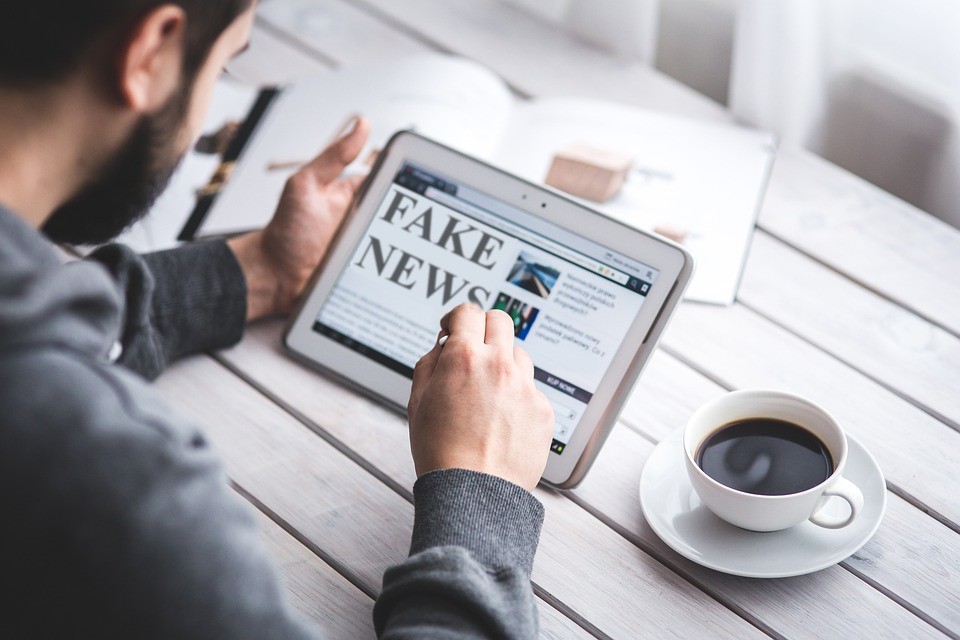
Disinformation – why it (often) works and why this can impact our security?
March 7, 2023
Author: Robert Pszczel
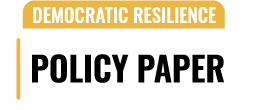



Disinformation – why it (often) works and why this can impact our security
Autor foto: Domena publiczna
Disinformation – why it (often) works and why this can impact our security?
Author: Robert Pszczel
Published: March 7, 2023
Pulaski Policy Paper no 12, March 07, 2023
All societies, countries, organisations, and private individuals functioning in public information space are confronted with the challenge of disinformation. The term originating in Russian language (dezinformatsiya[1] is defined by NATO as “the deliberate creation and dissemination of false and/or manipulated information with the intent to deceive and/or mislead.”[2] It hampers an honest and transparent debate, twists/distorts the facts which are the basis for rational deliberation and decision-making. The offensive goal of disinformation is obvious – to gain advantage over your opponent/competitor through dishonest means of lies, half-truths, deception and psychological manipulation.[3] In the case of authoritarian regimes its purpose can also be defensive – to distract attention from and/or cover-up shameful facts about its own crimes, deficiencies, and hostile policies.
All the above is by now well-known. Disinformation, part of hybrid operations, is one of the most studied phenomenon of current politics.[4] The motives, the instruments,[5] the modus operandi[6] of those who engage in disinformation are dissected on daily basis with precision and skill. We know a lot about the doctrine of information confrontation ,[7] about state propaganda messages promoted at a very high level, social media world of trolls and disinformation bloggers, outfits posing as independent think-tanks, or work of pseudo-media in e.g., Russia or China. The literature[8] on the subject is plentiful and contains lots of recommendations.[9] Even international institutions such as NATO[10] or the European Union[11] have established specialised outfits to gain expertise against this challenge.
Thus, it is rather worth to focus on the crucial aspect of generating impact via disinformation, which affects the calculus behind security policies of NATO and its member states: sentiments, ingrained assumptions, and willingness to focus on the problem by intended audiences subjected to disinformation campaigns. Disinformation works like the law of quantum physics – each atom has an individual “footprint’’ which for example decides what colour do we see when a photon hits a given surface.[12] Likewise, the way a recipient/target of a given disinformation narrative reproduces (or not) the content depends on its own information footprint and identity. Fully stopping disinformation efforts is exceedingly difficult (if not impossible), but the level of resilience to it is something that we can shape to a large extent, depending on the approach taken.
Let’s discuss the impact of some key themes promoted by our adversaries/competitors intended to change our security policy calculus.
- Adversary is not guilty of violating any norms and values, and even when it is, its guilt is relative
This is the foundation on which other strands of disinformation are built. In essence, disinformation producers strive to deny wrongdoings until overwhelming facts make it impossible (sometimes even after that). Thus the Iranian regime has strenuously denied sending weapon systems to any side in Russia’s war against Ukraine,[13] even though Russians themselves boast of using Iranian drones. China claims to be a pillar of respect for territorial integrity and peace, while making direct threats[14] towards Taiwan and condoning Russia’s attack on a sovereign neighbour. Attempting to falsify history is another strand, which in Russia it is taken to extremes – as anybody who has listened to Putin’s rants[15] about the “non-existence” of Ukraine as a sovereign nation can easily verify. No war crimes, political bribery and influence operations, aggressive spying or weaponising of every aspect of international relations (economic, energy, culture, sport etc.) are ever acknowledged.
If actions clearly contradict espoused policies, disinformation actors seek to minimise the gravity of violations and/or blame the others for similar offences (e.g. Russian fascist-like behaviour in occupied parts of Ukraine is blamed on allegedly fighting “Nazism”[16], Chinese economic exploitation of poor countries in Africa[17] is downplayed by constant references to Western colonialism etc.). Often, an imperfect grasp of history[18] shown by some Western opinion-leaders helps Putin’s regime to spread the myth that Russia was a just poor victim of the end of the Cold War.
None of those narratives stand up to any critical scrutiny. Many are downright crazy.[19] But they do produce some effects by “muddying the waters” on facts, sowing doubt on credibility of those states or institutions condemning violations of international norms and relativising the obvious guilt of states challenging international stability. This, in turn, makes it more difficult to build consensus for sanctions (and their rigid implementation), to argue for expensive spending on defence resources and to undertake tough measures aimed at restricting malign operations. After all, if the adversaries are not as dangerous as portrayed or commit acts replicating those associated with the West, then perhaps we should not treat the threats they pose as serious or worthy of a response?
The propensity to fall for this theme of disinformation may be driven by various considerations. These include such diverse sentiments as fear of losing economic profits, dismissive[20] attitude towards expertise of others, reluctance[21] to change policies shown not to be working, residual historical sensitivities,[22] to cite just a few. The common feature is a search for excuses to refuse acknowledging a confrontation imposed by an adversary. Among individuals, some intellectual or business celebrities (or those who want to become celebrities) are especially prone to parrot such disinformation, due to their own sense of ego,[23] pushing them to become conscious or unconscious enablers of this disinformation. Hence the propensity for unrealistic proposals[24] or “initiatives for peace,” or naïve promotion of dialogue at any cost, even with those who are openly conducting genocidal policies. These dilute focus and waste political attention needed for generating appropriate security and defence responses.
- Autocracies like China or Russia deserve full recognition as bona fide world powers, and should be treated with respect irrespective of their behaviour
This is a particularly popular misconception, colouring the views of many politicians and experts on different sides of the political spectrum. Among academics it takes the form of promoting a kind of false realism (vide views of John Mearsheimer).[25] It was fully on display prior to 24 February 2022 when Russia was engaged in faked “security architecture debates” serving to obscure preparations for a planned aggression against Ukraine. Moscow’s disinformation drive spared no efforts to convince the world that its demands towards Ukraine and NATO were rational and reasonable – and that it was NATO’s fault[26] not to recognise them as such. Although Kremlin demanded the impossible – de facto subordination of Ukraine to Russia’s policy, political and military loss of sovereignty, or restriction of Allies’ right of collective defence – there were multiple voices arguing that Russia was justified in seeking a de facto sphere of influence and rejection of its wishes was a provocation and a threat to peace. Since then, the same perverted logic has led to calls[27] for either desisting from supplying Ukraine with new defensive systems, allegedly in order to avoid “escalation of the conflict”, or aimed to force it into diplomatic negotiations[28] with Moscow who questions Ukraine’s right to exist. One sees similarities in arguments for accepting China’s right to take over Taiwan – even by force and against the wishes of the people concerned.
Those who accept, even partially, the “Macht is Recht” narrative are wrong on many levels. Historical analogies, e.g., comparisons to democracies aligning with USSR to defeat Nazi Germany, conveniently ignore the realities of the Second World War, which do not fit the conditions existing today. “Pseudo-realists” who function as enablers for cynical narratives of aggressive powers, overlook the consensus enshrined in the UN Charter. It bestows special rights on five permanent members of the Security Council for the purpose of upholding international peace and stability, and not as a permission to flaunt international law.
Moreover, fixation on special role of great powers, often leads to unjustified acceptance of propaganda narratives about their unique efficiency and predictability of behaviour. Combined with persistent claims (by modern Kremlinologists or Sinologists) that authoritarian states cannot be influenced from outside, the image of impenetrable fortress has become ingrained in the psyche of many Western decision-shapers.
Russian disinformation managers are determined to create the impression of unique military prowess of Russia. Lawrence Freedman[29] describes the aim of such disinformation (often served in a form of propaganda reminiscent of Soviet times) to “present Russia as a country with unlimited power, a will to use it, and little sense of proportion, so that any minor provocation could result in terror raining down on the perpetrator.” Coupled with invoking memories of Soviet victory in the Second World War, while ignoring the role of the Red Army in subjugating large parts of Europe after 1945 and military confrontation with NATO, this disinformation narrative has been aimed at those who may feel forced to accept Russia’s global power status as a step towards stability and frighten those who consider any form of military confrontation as abhorrent.
- Using nuclear threats to frighten international community.
Nuclear disinformation brinkmanship is worth a separate mention here. The spectrum of atomic Armageddon has haunted humanity since Hiroshima. Ordinary people and political leaders are ready to go an exceptionally long way to avoid a risk of a nuclear war. But while difficult (vide numerous “letters from intellectuals”[30] advocating caving in to aggression for the sake of “peace”), it is perfectly possible to explain to the public that to minimise the risk of an actual use of nuclear weapons you need to answer such blackmail with firmness not fear. After all, Putin regime’s disinformation narratives resemble old tactics from the Cold War (playing on the propensity for peace and dialogue in democratic societies), immortalised by the phrase “Better red than dead.”
In the end, nuclear threats are designed to sap morale and reduce willingness to stand up to the challenge. Which is exactly why, on Putin’s watch, Russia has been constantly resorting to nuclear threats in the most irresponsible way. The level of irresponsibility has clearly risen as Russia has been suffering military setbacks in Ukraine. Some have called this form of blackmail lurid apocalypticism[31] . The specific disinformation campaign started in spring 2022[32] – continued for months and was led by people like Minister of Defence Shoigu[33] – has involved warnings issued to several NATO ministers about an alleged threat of Ukraine using a “dirty bomb.” In reality, this is a somewhat desperate and transparent disinformation ploy[34] to threaten the world with a made-up pretext (or a false flag operation) for a possible nuclear retaliation by Russia – to diminish support for Ukraine. A joint response of the three nuclear Allies (P3)[35] has shown that this tactic will not work if united stand is adopted. And NATO will continue to ensure that its own nuclear deterrent remains credible.[36] This will not stop Russian officials from trying though.
- The myth of the powerless West
The above disinformation strands are linked by a meta-narrative trying to amplify and seize on existing fissures among Western states. It involves presenting the picture of a disunited West, falsely contrasted with alleged strength of partnerships enjoyed by autocracies in relations with third parties, by spreading a mixture of messages involving lies and partial truths.
The facts are the best antidote to falsehoods. A few examples. There is a queue of countries wanting to in NATO, while the Collective Security Treaty Organization (CSTO)[37] members no longer trust Russia even for holding exercises. In the long run, the West has proven to be more successful in dealing with the Covid[38] pandemic than autocracies. And democracies remain by far a bigger magnet for migration by those seeking a better, freer, and providing good life opportunities, that aggressive and despotic regimes.
Resorting to disinformation (especially by people like Putin who rule primarily through fear and corruption) is a sign of weakness of autocrats, not of their strength. Large part of the difficulties faced by democratic societies when confronted with disinformation can be seen as a self-inflicted wound. Intellectually, the existing fashion for post-modernistic thinking which relativizes all values[39] – thus questioning the existence of universal values – restricts ethical judgment of views promoted by disinformation narratives.
War against Ukraine should have taught us many lessons,[40] chief among them the realisation that nobody can remain indifferent to a glaring evil inflicted on that country by Russia. Ukrainians themselves have showed commendable skill in exposing and countering Russian disinformation.
The war has confirmed the falsehood of many disinformation myths. The Russian Armed Forces have proven to be rotten to the core by corruption and ineptitude, The Putin regime – through its shambolic mobilisation[41] drive – showed its real criminal and incompetent face to Russians and other people. Any disinformation efforts to portray Russia (and those states supporting it) as responsible international actors, now lack any credibility in the face of war crimes, violations of international law and destructive effect on world security and economic stability. Ironically, when faced with life-or-death situations, Russians themselves have begun to rediscover a taste for genuine facts and truth, suddenly turning in large numbers to independent Russian news outlets producing content abroad.
Interestingly, disinformation campaign patterns have shown only a partial overlap between Beijing and Moscow’s efforts. Yes, when it proven convenient for China, it has supported some Russian narratives, especially those critical of the West. But the fear of sanctions and concern for its own strategic reputation in the West, have so far prevented China from copying the most aggressive forms of Russian disinformation (especially on nuclear threats or even recognition of occupied Ukrainian territories as part of Russia).
Conclusion
- Disinformation onslaught is like a mirror put in front of us – if we like what we see, we will resist falsified narratives with confidence and will counter them with success. Nothing is perfect and we know that unity of views is a goal, not a given. But people across the world do know that freedom, human rights, respect for others and international principles are genuine values that trump lies, aggression, censorship, and old-fashioned propaganda softening the ground for disinformation, anytime. And, as even a modest knowledge of history and personal experience confirms, standing up to bullies (politically, economically, and militarily) to defend ourselves, in spite of disinformation attempts to convince us otherwise, will increase our security, not diminish it.
Author: Robert Pszczel, Senior Resident Fellow, Casimir Pulaski Foundation
The views expressed in this article are author’s own and do not reflect the position of any institution he is affiliated with.

[1] Russian origins of the term are described in Yablokov, I. Russian disinformation finds fertile ground in the West | Nature Human Behaviour. Nat Hum Behav 6, 766–767 (2022).
[2] Definition of disinformation used by NATO in 2020 can be accessed here: NATO – NATO’s approach to countering disinformation
[3] Good explanation of the offensive purposes of disinformation is provided by Jakub Kalensky – source: ‘It’s Time To Ignore’ The Traps: Disinformation Expert Says Kremlin’s ‘Empty Threats’ Have Paralyzed The West (rferl.org)
[4] Useful example of the scope of studies (in the digital domain) in the EU can be found here: Digital false information at scale in the European Union: Current state of research in various disciplines, and future directions – Petra de Place Bak, Jessica Gabriele Walter, Anja Bechmann, 2022 (sagepub.com)
[5] There is a huge amount of first-hand accounts of the ways in which a disinformation tool is used by the authorities in Russia. For example, this video-report by Yuri Dud is highly informative: Пропаганда – топливо войны / Propaganda: Fuelling War – YouTube. For the latest findings on political corruption schemes used abroad to spread disinformation see the OCCRP report: Kremlin-Linked Group Arranged Payments to European Politicians to Support Russia’s Annexation of Crimea – OCCRP
[6] Excellent example is provided by the case of so-called “metodichkas” — instructions sent by the Kremlin to propagandist journalists, editors, and bloggers – analysed in the report of Meduza: ‘You don’t cover up disfigured corpses by saying something positive’ The Kremlin’s written instructions to propagandists tell a story of desperation, failure, and frictions with the media — Meduza
[7] Information confrontation, or informatsionnoe protivoborstvo (IPb), is not just a slogan but a permanent feature of Russian strategic thinking in the last decades – see Rivalry in the Information Sphere: Russian Conceptions of Information Confrontation | RAND
[8] See, for example, an analysis of online influence operations here: A Brief History of Online Influence Operations – Lawfare (lawfareblog.com)
[9] There is no shortage of not just analysis, but also recommendations on how to deal with disinformation – see e.g. A Compendium of Recommendations for Countering Russian and Other State-Sponsored Propaganda | RAND from 2021
[10] Allies have established the NATO Centre of Excellence devoted to Strategic Communications, based in Riga, which produces valuable insights into the world of disinformation – see StratCom | NATO Strategic Communications Centre of Excellence Riga, Latvia (stratcomcoe.org) report here on manipulation practices by Russia in 2022
[11] The EU has established in 2015 a specialised unit called the East StratCom Task Force: Questions and Answers about the East StratCom Task Force | EEAS Website (europa.eu)
[12] Reference in “13 Things That Don’t Make Sense” by Michael Brooks, Profile Books, 2010, p. 49
[13] Evidence of Iranian supplies were clear many months ago – Iran agrees to ship missiles, more drones to Russia | Reuters but Teheran continues to deny the truth even in 2023.
[14] Public signalling, involving threats, was publicly pronounced by China’s leadership during the Communist Party Congress in October 2022 – see CNN report: See why China’s threat to Taiwan is ‘huge and immediate’ – YouTube
[15] Putin’s obsessive denial of Ukraine’s right to exist has persistent for many years, and intensified during Russia’s aggression that began in February 2022 Putin Calls Ukrainian Statehood a Fiction. History Suggests Otherwise. – The New York Times (nytimes.com) The extent of this obsession is so excessive that various theories even ascribe (partially) his fixation with Ukraine to a political science-fiction book – The Utopian Russian Novel That Predicted Putin’s War Plan – The Atlantic
[16] The Kremlin’s repetitive peddling of nonsensical “Nazi” label assigned to Ukraine is described by the EU unit here KEY NARRATIVES IN PRO-KREMLIN DISINFORMATION: “NAZIS” – EUvsDisinfo
[17] Some analysts do not hesitate to call China’s economic behaviour in Africa a form of colonial approach – vide Belt and Road: colonialism with Chinese characteristics | Lowy Institute
[18] A classic fallacy is ascribing a feeling of loss of the Soviet Union as a key driver or explanation for aggressive behaviour of the Putin regime (1) BFMTV on Twitter: “Emmanuel Macron: “Le pouvoir russe s’est nourri du ressentiment et de l’humiliation nés lors de la dislocation de l’empire soviétique” https://t.co/Ms2tyQ9Ceb” / Twitter
[19] There are many Russian disinformation products that are simply insane, there is no other word to describe it. This is a perfect illustration: Performance by russian-installed Kherson official Stremousov is one of the most bizarre things ever – YouTube
[20] For years, hard-nosed views on Russia of countries in Central and Eastern European have been dismissed as too emotional by those who understand Russian policy much less – see NATO Should Have Listened to the Baltic States on Russia | WPR (worldpoliticsreview.com)
[21] A thorough vivisection of the pitfalls resulting from sticking to a policy which does not work (the case of Germany)is provided by Ulrich Speck: Germany’s Russia policy (libmod.de)
[22] For Polish audiences disinformation providers focus on attempts to stir-up Polish-Ukrainian animosities, especially those fed by memories of painful history: Antyukraińska dezinformacja w Polsce po ośmiu miesiącach od inwazji Rosji na Kijów – Informacje (onet.pl)
[23] Fiona Hill explained how Putin likes to play on “egos of big men”: Fiona Hill: ‘Elon Musk Is Transmitting a Message for Putin’ – POLITICO
[24] Good example of persistent efforts to establish a reputation for “alternative thinking” about the war in Ukraine here: Ukraine’s Best Chance for Peace | RAND
[25] Why John Mearsheimer Blames the U.S. for the Crisis in Ukraine | The New Yorker
[26] The red herring of “NATO’s eastern expansion” is particularly popular with those trying to find a rational explanation for Putin’s barbaric policies: How NATO’s eastward expansion set the stage for the standoff in Ukraine | Wyoming Public Media
[27] Some calls (from spring 2022) to reconsider the idea of helping Ukraine with military supplies have not aged well – Yes, Ukraine needs weapons. But what if supplying them could prove catastrophic? | Rajan Menon | The Guardian
[28] All sort of arguments have been voiced to support Russian ploy for “negotiations”, with nuclear scenario threat being one of the more popular ones: How to Avoid Nuclear War Over Ukraine | The National Interest
[29] A quote can be found here: Going Nuclear – by Lawrence Freedman – Comment is Freed (substack.com)
[30] Italian example here «Un negoziato credibile per fermare la guerra» (avvenire.it) but plenty of other cases can be found.
[31] A phrase used by Robert E. Kelly Russia Won’t Use Nuclear Weapons in Ukraine – Enough with Your Creepy Dr. Strangelove Fantasies | Robert E Kelly (robertedwinkelly.com)
[32] US prepares provocations to accuse Russia of using tactical nuclear weapons – Military & Defense – TASS
[33] See Russia’s Shoigu holds second call with U.S. defense secretary in three days | Reuters
[34] A ploy easily debunked by a former NATO officials on social media: William Alberque on Twitter: “I stand by this interview, and wow, things have gotten…even more stupid. Russia sent a letter to the UN for a closed meeting to accuse Ukraine of preparing a false-flag dirty bomb, largely repeating the text that was posted on Telegram yesterday. 1/8 https://t.co/E4t2S5WDN7” / Twitter
[35] A statement of the three nuclear Allies from 24 October, 2022, can be found here: Rejecting Russia’s false allegations about Ukraine: P3 statement – GOV.UK (www.gov.uk)
[36] A clear view that nuclear deterrence works was expressed by, inter alia, a former SACEUR Nuclear Drills Near Russia Show Putin That NATO Won’t Back Down – Bloomberg
[37] The organization has already been called “Russia’s Unhappy Club” – see Russia’s Unhappy Club: The CSTO (rferl.org)
[38] While the claims of Chinese authorities in early 2022 that its policies are better than those of Western countries did not sound convincing already then – vide Taiwan’s people are not impressed with China’s “Zero COVID” status (brookings.edu) – subsequent developments have exposed the propaganda nature of those boasts.
[39] Good analysis of modern moral relativism is provided in “12 Rules for Life” by Jordan B. Peterson, foreword by Norman Doidge, pp. xviii-xxiii, Penguin Books, 2019
[40] I offered my own take on those lessons in July last year – NATO Review – The consequences of Russia’s invasion of Ukraine for international security – NATO and beyond
[41] Public information spaces abound with horrific details of Russian ineptitude in organizing new recruits for the war – vide (3) ChrisO_wiki on Twitter: “1/ More unhappy mobilised Russian soldiers deployed to Ukraine have spoken out about a chaotic mobilisation that has left them on a front line in eastern Ukraine with no training, no usable weapons, no food, no water, no orders and commanders they feel are lying to them. ⬇️ https://t.co/yxkpOtda9d” / Twitter or Prigozhin’s new pipeline (novayagazeta.eu)


